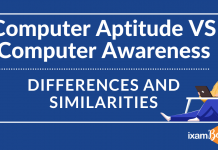Today’s session is a deep‑dive masterclass for all of you gearing up for the NABARD Grade A 2025 exam. We know the journey feels overwhelming—hundreds of topics, constant policy updates, and an ever‑rising cut‑off. Thousands of aspirants across India will sit for this exam, and competition is fiercer than ever.

You might have binge‑watched strategy videos, subscribed to every Telegram channel, and still wonder: “Am I doing enough?” Well, in the next few minutes, I’m going to share 14 critical reasons why you might fail your nabard exam, drawn from real‑world experiences of successful candidates—and how you can flip each one into your personal advantage. This isn’t just another listicle; consider it your battle‑plan, your mental armour, and your map to navigate the toughest exam in the rural finance space.
So, grab your notebook, switch off distractions, and let’s ensure that when you walk into that exam hall, you do so not as an anxious aspirant, but as a confident contender ready to conquer every section of the NABARD Bank exam 2025. Ready? Let’s dive in!”
1. Underestimating 2025’s Trend Topics
While you might be comfortable with core subjects like rural credit, remember that NABARD Grade A is evolving. In 2025, expect deep‑dive questions on:
- Climate‑Resilient Agriculture: Crop insurance frameworks, Paramparagat Krishi Vikas Yojana, and innovative water‑harvesting models.
- Digital Rural Finance: UPI for micro‑transactions, e‑KYC onboarding of farmers, supply‑chain tracking via blockchain.
- SDG Alignment: How NABARD’s flagship schemes map to the UN’s Sustainable Development Goals, and the metrics used to measure success.
Why You’ll Stumble: If you treat these as “extra topics,” you’ll choke on scenario‑based questions that blend old‑school and new‑age policies.
Flip the Script: Allocate one “trend‑tracker” session each week—summarise government circulars, RBI papers, and top headlines in 10 concise bullet points.
2. Ignoring the Full Syllabus
It’s tempting to focus on economics or banking awareness—the “fun” bits—but nabard exam 2025 demands expertise across rural development, agricultural economics, financial inclusion, plus the General Awareness and Reasoning sections. Overlook sections like agro‑processing, micro‑finance models, or poverty alleviation programmes, and you’ll leave marks on the table.
Why You’ll Stumble: Gaps in the syllabus create blind spots. Examiners love to pick on niche areas you ignored.
Flip the Script: Create a master checklist in Notion or Excel. Break down every topic into sub‑topics, set deadlines, and mark them off as you master them.
3. Rote Learning vs. Conceptual Clarity
Memorising policy names and dates might earn you marks on straightforward questions, but when the paper presents a case study—say, “Analyse the impact of a pest‑resistant crop scheme on farmer livelihoods”—rote learners freeze.
Why You’ll Stumble: You won’t know how to apply the theory in practical contexts.
Flip the Script: After each topic, ask yourself “Why was this policy launched?” and “How does it work on the ground?” Build mind‑maps linking schemes, institutions, objectives, and measurable outcomes.
4. Skipping Your Daily Current Affairs Drill
Reading random headlines isn’t enough. The nabard bank exam specifically tests your grasp of the latest policy shifts in agriculture and rural finance—RBI’s new priority sector lending norms, the launch of an AI‑driven crop monitoring app, or updated Kisan Credit Card guidelines.
Why You’ll Stumble: You’ll misanswer or skip questions on recent initiatives, costing you valuable marks.
Flip the Script: Dedicate 30 minutes each morning to summarise rural‑sector news. Use Anki flashcards for quick recall of key dates, fund sizes, and scheme objectives.
5. Treating Mock Tests as Optional
Mock tests are not a luxury—they’re your reality check. They reveal:
- Time Management Issues: Can you finish 200 questions in two hours?
- Pattern Recognition: Which topics are repeatedly testing your weak spots?
- Exam Psychology: How do you handle curveballs under pressure?
Why You’ll Stumble: Without mocks, you risk panicking at tough questions, misjudging difficulty, or crashing on speed.
Flip the Script: Schedule at least one full‑length mock every week. Post‑mock, tag every error (knowledge gap, misread, or time crunch), discuss tricky questions in a peer‑group call, and revise your weekly plan accordingly.
6. Overestimating Your Speed
Reading a chapter in two hours doesn’t translate to solving 200 questions in two hours. Under timed conditions, you’ll either rush and make careless mistakes or crawl and leave questions unanswered.
Why You’ll Stumble: Misjudging your pace leads to unanswered questions and lost marks.
Flip the Script: Use Pomodoro‑style timed quizzes—25 minutes on a mini‑test, 5 minutes break—to train your brain for real‑exam tempo.
7. Neglecting Descriptive Paper & Interview Prep
You might clear the objective cut‑off, but the descriptive paper (essay and letter writing) and personal interview are make‑or‑break.
- Descriptive Writing: Structure essays with storytelling—start with a ground‑level challenge, weave in scheme benefits, conclude with data‑backed impact.
- Interview Prep: Prepare three personal anecdotes highlighting leadership, problem‑solving, and your passion for rural upliftment. Brush up on NABARD’s mandate, the latest developments in micro‑finance, and your own career goals.
Why You’ll Stumble: Ignoring these rounds means a strong objective score won’t guarantee selection.
Flip the Script: Write one essay and one letter every alternate day. Record and revise them. For interviews, practice mock Q&As with a friend or mentor.
8. Starting Preparation Too Late
Panicking in September for a November exam? That’s bedtime stories for stress and superficial learning.
Why You’ll Stumble: Last‑minute cramming leads to confusion and skipped topics.
Flip the Script: Start at least six months out. Reverse‑engineer your plan from exam date: slot weekly milestones, topic blocks, and mock‑test weeks into your calendar.
9. Cognitive Traps & Mindset Misfires
Even top scorers face mental roadblocks:
- Dunning‑Kruger Effect: You think you know more than you actually do after a quick skim.
- Imposter Syndrome: Self‑doubt creeps in, turning familiar questions into insurmountable monsters.
Why You’ll Stumble: A shaky mindset derails your hard work at crunch time.
Flip the Script: Incorporate daily affirmations—“I am prepared,” “I tackle tough questions calmly”—and visualise yourself confidently answering the hardest questions.
10. Siloed Learning vs. Integrated Mastery
Studying rural development, agricultural economics, and financial inclusion in isolation? That’s asking for trouble.
Why You’ll Stumble: NABARD Grade A questions often blend topics. E.g., “Discuss how NABARD’s Watershed Development Programme promotes financial inclusion through SHG‑Bank linkage.”
Flip the Script: After each chapter, write a short summary linking it to at least two other topics. Use tools like XMind or simple flip‑chart doodles to visualise connections.
11. Chasing Shiny Resources
Ten different YouTube channels, five coaching PDFs, and every Telegram guru—you’ll end up drowning in content without clarity.
Why You’ll Stumble: Resource overload leads to confusion and lack of depth.
Flip the Script: Stick to three core resources:
- Primary Documents: RBI Annual Reports, NABARD whitepapers.
- One Coaching Series: For structured mocks.
- Previous‑Year Papers: To master the actual pattern.
12. Ignoring Smart Tech in Prep
YouTube and PDFs are great—but have you tried:
- Anki Flashcards: Spaced repetition for key schemes, dates, and definitions.
- Notion or Trello Boards: Track topic completion, mock scores, and error logs.
- AI Summaries: Feed bulky PDFs into ChatGPT to generate crisp bullet‑point notes—then quiz yourself on them.
Why You’ll Stumble: Sticking to old‑school methods limits your efficiency.
Flip the Script: Embrace digital tools to streamline revision and maximise retention.
13. Skipping Self‑Care & Energy Management
All‑nighters might seem heroic, but burnout kills productivity.
Why You’ll Stumble: Brain fatigue leads to sloppy learning and loss of motivation.
Flip the Script:
- Pomodoro Sessions: 25 minutes study, 5 minutes break.
- Morning Walk or Yoga: Boosts focus for heavy policy reading.
- Weekend Digital Detox: Recharge without screens—your mind will thank you.
14. Neglecting Storytelling in Descriptive & Interview Rounds
Facts alone won’t win hearts. Can you tell your NABARD story?
- Descriptive Writing: Anchor essays in real‑life narratives— “When X scheme reached village Y, farmer incomes soared by Z %.”
- Interview Anecdotes: Craft concise, engaging stories demonstrating your rural insights and leadership.
Why You’ll Stumble: A dry recital of facts fails to impress examiners.
Flip the Script: Practice weaving data into stories. Record yourself on video to refine tone, pauses, and impact.
“There you have it—14 game‑changing reasons why aspirants falter in the NABARD Grade A 2025 exam. But here’s the golden nugget: awareness is the first step to mastery. Map your syllabus, deepen your concepts, embrace technology, sharpen your mock‑test strategy, and care for your mind and body. And above all, tell your story with confidence.
ixamBee specializes in providing expert guidance and resources for banking exams 2025, ensuring that you are well-prepared for the Upcoming Bank Exams like RBI Grade B, NABARD Grade B, IBPS SO, and more. Our courses align with the bank exam calendar 2024, covering all the essential topics. With a focus on the upcoming bank jobs, our Previous Year Papers, BeePedia, SSC CGL, SSC CHSL, SSC MTS and other Mock Tests are designed to help you excel in upcoming banking exams.















